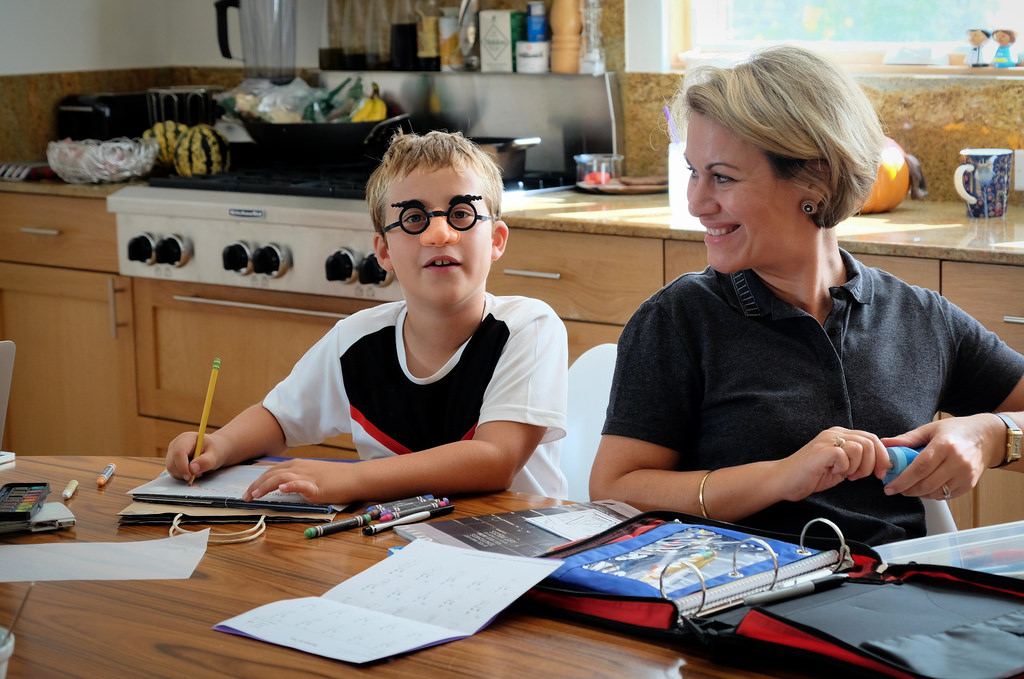Homework: 14 practical ways to help kids help themselves (without the wailing or gnashing of teeth)
Many parents of primary school-aged kids – me included – are in two minds about homework. It can go either way:
- At its best, homework helps kids learn, sparks curiosity, makes them feel independent, in control, and motivated, promotes self-study skills and encourages self-reliance.
- At its worst, homework can lower motivation, decrease interest in school subjects and school, and lead to conflict between kids and their parents (e.g. Cooper et al., 2012).
Kids’ cognitive development between the ages of 5 and 10 years of age predicts adult academic achievement more than earlier development (Feinstein & Bynner, 2004). In this period of development, most parents still have significant influence over their offspring, meaning they can play an important role in supporting their kids with schoolwork while teaching them how to stand on their own two feet.
So how can parents help their kids help themselves?
Recent research by Dr Greta Doctoroff and Professor David Arnold suggests that parents should use strategies to support independence (autonomy) and engagement. The researchers found that, when parents use these strategies, kids achieve better results in reading tasks, than kids who are micro-managed by their parents or left completely to their own devices.
14 practical examples of things you can say to your child about their homework to support them but promote independence
- Make it clear they have to do their homework, but let them choose which task to do first. “Which one do you want to do next?”
- Give them a choice between two tasks. “You can write that story first or draw the picture.”
- Ask “open” questions that promote critical thought. “When is this due?” “What do you think is the best way to do this?” “What do you want your story to be about?”
- Don’t jump in and complete the task for them. If they demand help, ask: “How can I help?” rather than anticipating what they need.
- Praise them for having a go, and for doing it themselves. “Looks like you completed the worksheet by yourself. Well done! Fantastic work!”
- Smile while you work together! No shouting! No tears!
- Respond warmly to their questions and comments – turn homework into a conversation with you and your child thinking through problems aloud.
- Stay patient. Go at their pace, not yours. (This one is hard to do, but well worth it. If you jump in too early and help, your child will learn to wait you out!)
- High five/pat their arm/hug them to show support for their attempts.
- Guide them on how to tackle the questions, but don’t supply the answer. “What do the directions say about what you need to do?” “What do you think you could do next to figure it out?” “Think about what you want to draw and then describe your picture with words.”
- Define any academic words in the instructions they don’t understand, e.g. “A synonym is a word with the same meaning”, “Contrast means show how things are different or opposites”. You can read definitions of many of these academic words here and here.
- Define any other words the child doesn’t understand or remember. “Endangered means that the animal is at risk of dying out or becoming extinct.” If you are a bit sketchy on the meaning of a particular word, look it up together in a dictionary (online or book), or simply type “Definition: [word you are after]” into Google.
- Encourage them to read their work back out loud. “You could read your sentence out loud to check that it makes sense.”
- Praise correct answers: “That’s right! You got it!”
11 things NOT to say to your child (even if you can’t help but think them to yourself!)
- Directive commands: “Do this page next. Then this one.”
- Answers: “Write that she wanted a dog on this line.”
- Turning your child into a scribe: “I’ll make up a story, you write it down.”
- No explanation: “No, the answer is (b).”
- Giving up, pushing ahead: “That’s not right. Do the next one.”
- Exasperation: “[Loud sigh!]”
- Taking over: “No, not like that. Here, give me the pen.”
- “Use your brain! Think! Stop being careless.”
- Discouraging remarks: “I don’t think you can do this.”
- Vague remarks: “Kinda, but make it better!”
- Inaccurate remarks, e.g. “A fox is a kind of cat/wolf hybrid.” “Contrast means tell how they are the same.” (Again, a good dictionary can help.)
Proceed with caution!
As the authors note, the study was preliminary and had loads of limitations. For example, it’s much easier to be positive and encouraging when kids are thriving and focused, not struggling, so the cause/effect relationship (if any) between the strategies and academic results is unclear. The study used simulated (rather than real) homework, and only on reading/language tasks (not, for example, maths). There were limited controls and the assessors weren’t blinded to the groups, meaning the study may have been biased. The sample size was small, with only 61 students. The research base on this important topic is – at best – pretty patchy. The researchers’ based their experiment on “self-determination theory”, which is a long way from being proven.
Clinical bottom line
As parents, the way we interact with our kids as they do their homework may affect our kids’ results at school. Kids who feel their homework efforts are supported by their parents while also encouraged to think for themselves and have a go may achieve better school results than kids who are told what to do or left to do it without support. But much more research is needed before we can say this for sure.
Related articles:
- For reading, school and life success, which words should we teach our kids? How should we do it?
- How to improve exam results: 9 free evidence-based DIY strategies
- Worried about the HSC? 8 practical (and free) things you can do this week to get ready
- Speech pathology homework doesn’t have to be boring
Principal source: Doctoroff, G. L., & Arnold, D.H. (2017). Doing homework together: The relation between parenting strategies, child engagement, and achievement. Journal of Applied Developmental Psychology, 48, 103-113.
Image: https://tinyurl.com/y77ekltl

Hi there, I’m David Kinnane.
Principal Speech Pathologist, Banter Speech & Language
Our talented team of certified practising speech pathologists provide unhurried, personalised and evidence-based speech pathology care to children and adults in the Inner West of Sydney and beyond, both in our clinic and via telehealth.








